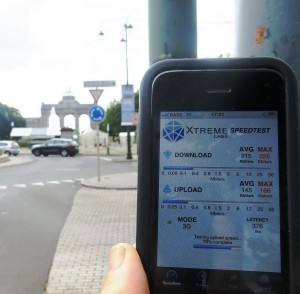Returning To Work After An Injury

If you’re on the road to recovery after an injury, you’re probably planning on taking the necessary steps to get back on the job. Whether or not your injury was work-related, your time off was well deserved. However, when an employee stays away from work due to injury, it can become costly to employers. They’ll want you back as soon as possible, but not before you’ve fully recovered.
When you start planning to return to your job, there are a few things you should consider. The process can be a delicate one, but it is made easier when both parties, the worker and the employer, understand the best practices involved in going back to work.
Why Go Back?
First, you should decide if you want to return to your job. If your injury was work-related, you may decide that your previous position posed too much of a risk. If not, you will find that going back to work as soon as possible is beneficial in a few key ways.
Financially, returning to work is a good idea. Your worker’s compensation likely does not equal out to your regular pay, and you can’t earn promotions or raises while you’re absent. Additionally, getting back to an active lifestyle could help you make a complete recovery even faster while also boosting your confidence.
Stay in Touch

Workers who know they’ll be returning to their jobs upon recovering from an injury should prioritize staying in touch with their managers. Likewise, employers should make it a point to touch base with injured employees throughout their recovery process and provide support when they can.
Your boss should keep up with your recovery so he or she can have an idea of when you can come back to work and what sort of duties you’ll be able to perform. Keep them up to date on your condition until you’re ready to return.
Before Going Back
Before you head back to your job, you will need to notify the Workers’ Compensation Board if you’re receiving benefits. Your attorney can get in touch with them and the insurance carrier to let them know you’re returning to work.
Reasonable Accommodations
It is likely that you won’t be able to perform the same duties at work right away. Employers often account for this, developing a set of temporary responsibilities you can easily perform without hurting yourself again.
Fortunately, most employers recognize that making accommodations for injured employees is cost effective. Getting you back on the job, even with an adjusted workload, is less expensive than keeping you away. In fact, the United States Department of Labor reports that over half of worker accommodations cost employers absolutely nothing.
Lighter workloads, adjusted hours, or even offering to let you work part time from home if your job allows it are all possible options for making a smooth transition.
Compensation and Other Considerations
Keep in mind that you stand to continue receiving compensation benefits even after returning to work if your pay was lowered due to your disability. You must prove that you are partially disabled and that it directly caused your pay to be lower than it was at the time of your injury.
Also, note that employers are not required by law to keep your position open while you recover. While most companies readily welcome their injured workers back, it is still beneficial for you to stay in touch with your employer and request updates about your job status.
As you prepare to get back to work, remain confident. Your injury does not define you, and it is still possible to be a productive employee despite any disability you may have. Work closely with your employer to ensure your re-entry into the workforce is a smooth one.
